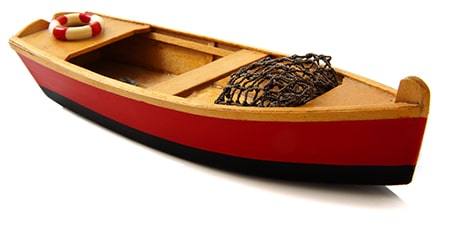An In-depth Exploration of Shipping Law in United Kingdom
 Shipping law in the United Kingdom is a multifaceted legal domain that governs the activities, operations, and transactions related to maritime trade and navigation. This comprehensive legal framework ensures the safety of vessels, protection of the marine environment, and the rights and responsibilities of all parties involved in shipping. From historic admiralty laws to modern international conventions, the UK's shipping legal landscape is both rich and dynamic.
Shipping law in the United Kingdom is a multifaceted legal domain that governs the activities, operations, and transactions related to maritime trade and navigation. This comprehensive legal framework ensures the safety of vessels, protection of the marine environment, and the rights and responsibilities of all parties involved in shipping. From historic admiralty laws to modern international conventions, the UK's shipping legal landscape is both rich and dynamic.
Admiralty Law
Admiralty law, with its roots deeply embedded in maritime history, forms the foundation of the UK's shipping legal system. Dating back centuries, admiralty courts have been adjudicating cases related to collisions at sea, salvage operations, and maritime liens. These courts play a crucial role in maintaining order and justice in maritime affairs, contributing to the development of principles that guide modern shipping law.
The Merchant Shipping Act
Central to the UK's shipping regulatory framework is the Merchant Shipping Act, a key piece of legislation that addresses various aspects of maritime activities. This Act governs ship registration, safety standards, and employment conditions within the maritime sector. It sets out clear guidelines for the construction, equipment, operation, and manning of ships, ensuring a secure and efficient maritime environment.
International Conventions and Safety Standards
The UK, as a global maritime player, actively participates in international conventions to enhance maritime safety. The International Convention for the Safety of Life at Sea (SOLAS) is paramount, establishing minimum safety standards for the construction and operation of ships. Compliance with SOLAS and other conventions demonstrates the UK's commitment to global maritime safety, fostering cooperation among nations for the benefit of the entire shipping community.
Maritime Labour Standards
The Maritime Labour Convention (MLC) sets forth comprehensive standards for working and living conditions for seafarers. As a signatory to the MLC, the UK ensures that seafarers enjoy decent working conditions, fair employment practices, and access to essential amenities. This commitment not only upholds human rights but also contributes to a more stable and reliable maritime workforce.
Environmental Protection and Pollution Prevention
In alignment with international efforts, the UK implements stringent measures to prevent marine pollution. The International Convention for the Prevention of Pollution from Ships (MARPOL) serves as a cornerstone, addressing various types of pollution from ships. The UK's commitment to environmental protection includes regulations on waste disposal, oil spills, and emissions, reflecting a dedication to sustainable and responsible maritime practices.
Maritime Security
In response to evolving security threats, the UK has embraced the International Ship and Port Facility Security Code (ISPS Code). This regulatory framework ensures the implementation of security measures on ships and at port facilities, contributing to the overall safety and resilience of the maritime sector against potential terrorist activities.
 Carriage of Goods by Sea
Carriage of Goods by Sea
The UK's legal provisions for the carriage of goods by sea are essential in facilitating international trade. Conventions such as the Hague-Visby Rules and the Hamburg Rules establish the rights and obligations of parties involved in transporting goods by sea, providing a transparent and predictable legal framework for maritime commerce.
Marine Insurance
The Marine Insurance Act 1906 remains a cornerstone of marine insurance law in the UK. While rooted in tradition, ongoing developments in the sector demand a modernized approach. The Act provides a framework for resolving disputes, offering clarity on issues related to coverage, claims, and liabilities in the complex world of marine insurance.
Arrest of Vessels
The arrest of vessels is a potent legal tool in maritime claims. The UK follows established procedures for vessel arrests, allowing claimants to secure their interests by detaining a vessel until their claims are satisfied. This mechanism adds a layer of security and ensures that obligations are met in the intricate web of maritime transactions.
Ship Registration
The UK Ship Register, renowned globally, plays a crucial role in establishing a ship's identity and nationality. Ship registration provides evidence of ownership, facilitates international trade, and enables vessels to obtain necessary insurance. The UK's commitment to maintaining a reputable ship registry underscores its position as a key player in the global maritime industry.
 Post-Brexit Dynamics
Post-Brexit Dynamics
In the post-Brexit era, the UK's shipping law has undergone adjustments to align with new trade agreements and regulations. As the nation forges its path outside the European Union, the maritime sector continues to evolve, presenting both challenges and opportunities for stakeholders in the UK shipping industry.
In conclusion, the multifaceted nature of shipping law in the United Kingdom reflects the complexities and challenges inherent in the maritime industry. From historic admiralty laws to contemporary international conventions, the legal framework governing shipping in the UK is dynamic, ensuring the safety of navigation, protection of the environment, and fair treatment of all stakeholders involved in maritime activities. As the global maritime landscape evolves, the UK remains a key player, adapting its legal structures to meet the demands of a rapidly changing industry.
 English
English
 عربي
عربي Русский
Русский 官话
官话 português
português
 Türk
Türk 










